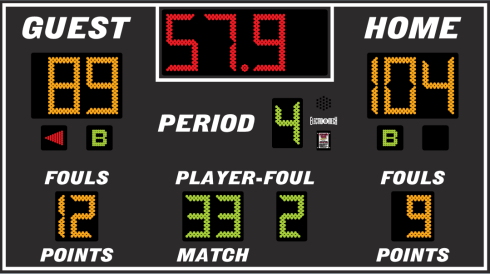
I am not looking forward to my meeting tomorrow with my executive coach. I just finished my homework from our last session. I tracked my time for a week, and the results don’t look good.
I hired my coach to help me achieve breakthrough results at Netcito. His job is to help me win by making Netcito thrive. When I added up my weekday hours, I spent only 38% of my time on Netcito. Another whopping 38% of the total went to personal time: meditating, yoga, biking, my daughter Elisabeth’s summer ballet recital, and miscellaneous errands.
I can already anticipate the conversation: “Peter, you’re being too self indulgent. If you want results with Netcito, you need to work harder.” What will I drop? Yoga and meditation? They are the foundation of my sanity. My daughter’s ballet recital?
I am ready for battle as I climb the stairs to my coach’s office. Something will have to give. Will it be my personal time or my aspirations for Netcito?
The conversation begins. “How did the timekeeping exercise go?”
“Scary. I should be spending more time on Netcito.”
“What’s the ‘should’ about?”
“The ‘should’. I should be working harder. I should be producing more results. I should be picking up more members and making more money. I’ve got to continue marching forward so that I can prove my value and that of my company.”
“Oh, I get it! You’re scoreboarding!” My coach hit me with the one punch that I wasn’t prepared for. What’s scoreboarding? I thought that a scoreboard was a noun, not a verb.
Scoreboarding happens when we confuse our value as a person with the points on the scoreboard. Winning points becomes more important than playing the game. We lose track of the joy of the game and instead focus singlemindedly on the score. We assess ourselves and others exclusively on the basis of how many points we earn.
My past suddenly rushes into focus. I remember arriving at a meeting of an exclusive group of entrepreneurs several years ago (not a Netcito meeting!). The meeting took place in an empty mansion in McLean, VA. It wasn’t literally empty, but the space felt so big that the furniture and people were small by comparison.
The entire meeting felt as hollow as the mansion. We talked about cars, sports, and business. Maybe it was my imagination, but it seemed like everyone was competing to see who had the biggest company, knew the most important people, and made the most money.
I had arrived with exactly the major league entrepreneurs that I yearned to be around. Now that I was there, I didn’t have much interest in staying. I was expecting steak and it tasted like cardboard. With this and dozens of other moments in my life, racking up points didn’t lead to the satisfaction that I expected.
That meeting wasn’t an indictment on the people present. These were entrepreneurs who were rich in experience and insight. But in a room where everyone is watching the scoreboard, the only thing that matters is the points.
My coach helped me realize that my focus on the scoreboard was crowding out values and perspectives that were more important to me. Through my work with Netcito, I have come to understand that the really interesting work happens when we focus on the aspects of entrepreneurship that nourish our soul. It lies in exploring our creative edge, digging into the moments where we struggle, and aligning our values with what we do. That process happens regardless of whether we are at 1 or 100 points.
Since speaking with my coach, I’ve changed the way that I speak about Netcito. When people asked about Netcito before my scoreboarding session, I talked about our metrics. Our expansion into new cities, our member acquisition strategy, or our progress towards achieving scale.
When people ask about Netcito now, I talk about the difference that our groups make in the lives of our members. I talk about the breakthroughs that we experience in our businesses and our lives. I explore the animating purpose of Netcito, which has a lot to do with experiencing entrepreneurship as a way to realize our full potential for love, joy, and contribution.
The shift sounds simple and it probably is. It’s also profound. For most of my life, I have evaluated myself and others based on points scored. It’s clear now that no matter how many points I rack up, they won’t feed my soul. I am now more interested in who people are than what they do.
The way that we spend our time reflects our priorities in life. The time that I spend on Netcito may need to take a hit so that I can clear my mind through meditation, see my daughter’s ballet recital, or strengthen my body and soul through Yoga. When I take away the scoreboard, my doubts about this investment of time vanish.
I’m honestly curious about the impact that scoreboarding has on all of our lives. How does it shape our priorities, and to what extent? Is it always a bad thing, or are there ways to harness it? Most importantly, what happens when we give it up? I would love to hear your thoughts.

Peter Mellen
Founder & CEO


